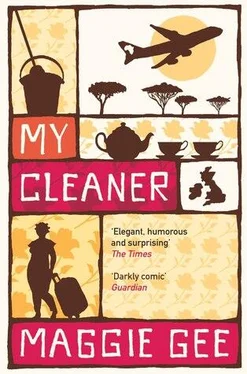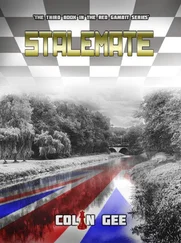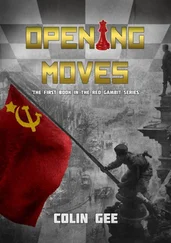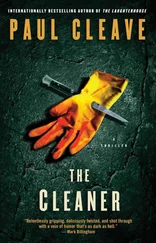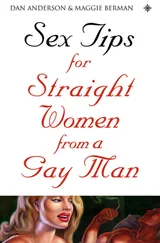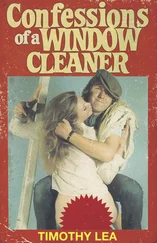But how does Mary manage it? Vanessa asks herself, puzzled. Do we actually all do whatever she wants?
And they follow her meekly into the church and down into a pew at the back, where everyone but them is black. Indeed this whole segment of the church is black. Vanessa wonders if she will be unwelcome, but a glance at Mary’s face shows she isn’t bothered.
“Why do all the black people sit over here?” she asks Mary. “Is it because English people are racist?”
Vanessa feels proud to have used the ‘R’—word. It is the beginning of their new frankness. After all, if they are friends, there must be no secrets.
But Mary, who was praying for Zakira and the baby, the granddaughter of whom Vanessa knows nothing, just laughs, and points at the radiators. “It is because the heaters are here at the back. English churches can be very cold places.”
Mary has many things to pray for today. First of all for Jamil. Always Jamil. For Zakira and Justin and the baby. And for herself. For her own secret. The autobiography that she is writing. And about the agent. As she promised Vanessa, she is going to pray hard about the agent. Though Vanessa does not have any idea why.
It is Vanessa’s first time in a church since she sat by her father for her mother’s funeral. “It’s what she would have wanted,” she remembers him saying. According to her father, they used to go often, when she was just a tiny girl, before her mother’s world was warped by illness, and perhaps that accounts for the shock of love Vanessa feels this morning when the second hymn turns out to be a rousing ‘We plough the fields and scatter’; and though she is wary of sentiment, she finds there are tears pricking in her eyes. She is part of the singing, and part of the people, and part of all people everywhere who have ploughed the fields and loved the earth, who have scattered the good seed on the land, who are watered by the Almighty hand; and somewhere in that surge of feeling is an almost forgotten love for her father. The congregation belt the hymn out, and she is surprised to hear Justin singing, a fine tenor voice, and she squeezes his hand.
But Mary is looking at the harvest display, which is on a table in front of the altar. Can the Reverend Andy be pleased with it? There are small ziggurats of tins, rows of packets, a pineapple with a label still on it, some faded, supermarket-style apples, and somebody has brought a pumpkin, but for some reason, it’s been tucked behind the tins (in fact, Andy’s female curate hid the pumpkin, at the last moment, as they all came in, because of the association with witchcraft). Mary and Vanessa’s offerings stand out well against this patchy, unsatisfactory landscape.
I was the child who came with the harvest, Mary Tendo thinks, half the world away. But it seems that in UK, they have forgotten how to grow things. One day they will starve, like Ethiopians. Although they have rain, and this is not a desert.
As usual, Mary tries to listen to the sermon, but Andy speaks as if to small children, making jokes about TV that are not very funny (though maybe she is wrong, because Justin, who watches TV all day long, laughs happily, pleased to be included, and so do some of the scruffy white people). Soon her attention wanders again.
Not everything in England is better, Mary thinks. Perhaps it will be different in the country, when I go to the village with Vanessa. Perhaps there are still harvests in the country.
Mary’s never been to the English countryside, though twice she and Omar went to the seaside, and stayed in what they called a ‘B and B’. They were the only black people, and everyone stared, in that English fashion where the eyes flick away and then they pretend they are not interested, though they were kind to Jamie, and not unfriendly, and Jamie loved the water, and played on the sand, and he could be naked, and no one bothered…
She sees him, suddenly, gilded by the sunlight, maybe three or four, running for the sea, and his laughter is blown back towards them by the wind, and his sturdy body gets smaller and smaller as his little legs pound down the firm sand, and she suddenly sees he will run straight into the water and sets off after him, hurrying, but he goes faster, and the tiny black figure plunges into the wide band of wavery silver and screams at the cold, then disappears, and she runs faster, and at last she finds him.
Omar was untroubled, reading a paper. Omar thought Allah would look after him.
And she prays, silently, fiercely, clearly: Jesus, please bring me news of my baby. You who see everything, find him, please .
Vanessa sees Mary staring fixedly at their offerings on the meagre table, and whispers in her ear, “Well done, Mary. You saved the day.”
Mary blinks at her, startled, far away. “I don’t understand.”
“Your Savoy cabbage. Look. I’d say it’s the absolute star of the show.”
“Thank you, Vanessa.” Yet her face is almost haughty. “Vanessa, it is time for the collection.”
“Oh heavens, Mary, I hope I’ve got some money.” Vanessa starts digging through her handbag. Mary knows there is always money in that handbag, untidy bunches and sheaves of notes. She decides to help Vanessa get into heaven.
“It is OK, Vanessa. Twenty pounds is enough. If you have not got anything larger.”
Vanessa draws her breath in, sharply, but the maroon brocade bag on its wooden handle is almost there, carried by an ancient sidesman, and resignedly she finds a twenty, and pushes it in to the maw of the bag, though she’s almost sure Mary only gives five, there is a glimpse of blue-green in Mary’s dark pink palm, and further along the row she hears the chink of coins, and she wonders why Mary Tendo is smiling.
And then Vanessa thinks of the phone-call this morning, and the voice, so unfamiliar, drops into place, a voice she knew from over a decade ago. “Mary,” she hisses, “I’ve just remembered. Somebody rang. I mean, once or twice. I think it might possibly have been your husband.”
She is not prepared for Mary’s ghastly face, the smile dying, the sharp intake of breath.
And now Mary Tendo starts praying in earnest, she sinks to her knees on the hard stone floor, there is no time for the embroidered hassocks which hang unused on the back of the pew, and she squeezes her eyes into concentrated darkness, she prays for light, she prays for help: Please not now, Jesus. I cannot bear it . Mwatttu sikati yesu! Jamie is young, he understood nothing. Please take this cross away from me .
But even as she prays, she knows it is hopeless, she has known ever since the first news came of her son leaving home in Tripoli. And yet, if she hears Omar say those words — if she must hear her husband, and Jamie’s father, saying the words she fears so much—
Lord, take this cup away from me. But if it is your will — Mary cannot go on. She fixes a polite smile on her face, pushes along the pew, passing Vanessa and Trevor and Justin with the faintest acknowledgement, because they have slipped into a world of ghosts, and walks out of the church, the swing doors crashing.
She runs all the way home, breath tearing, heart thumping, Mary who never hurries, never runs, and rings her husband in Libya, which Vanessa owes her, and has always owed her, she thinks, as she furiously punches out the numbers: “Omar,” she says, as his familiar voice answers in guttural Arabic. “It is I, Mary. Is there any news?”
Omar sounds strange, surly, in rusty English. “I have been ringing you since three weeks…Mary, you promised to give me your mobile number.”
“I lost my mobile. I will give it to you now.” (But even his surliness is a relief. If Jamie were dead, he would not be surly.)
Читать дальше
